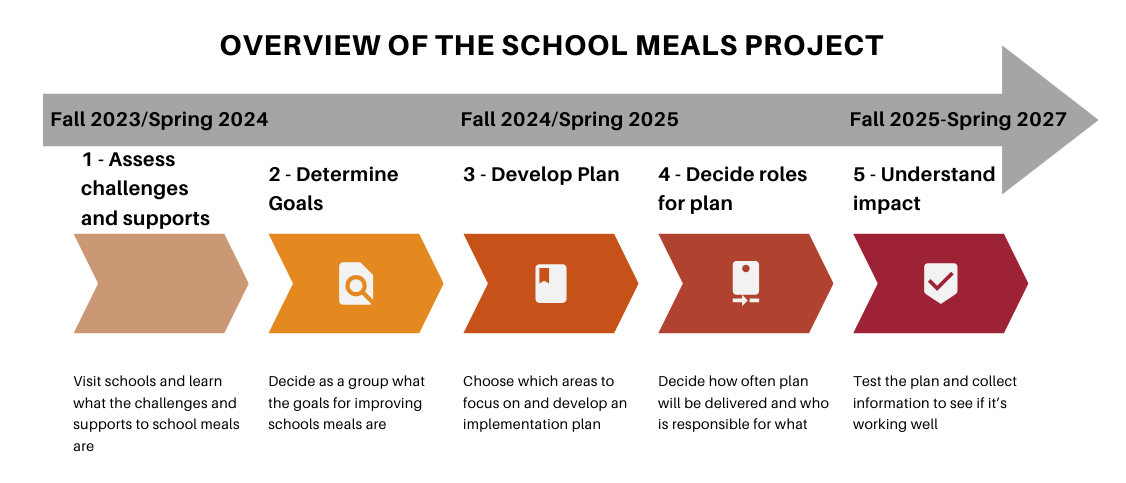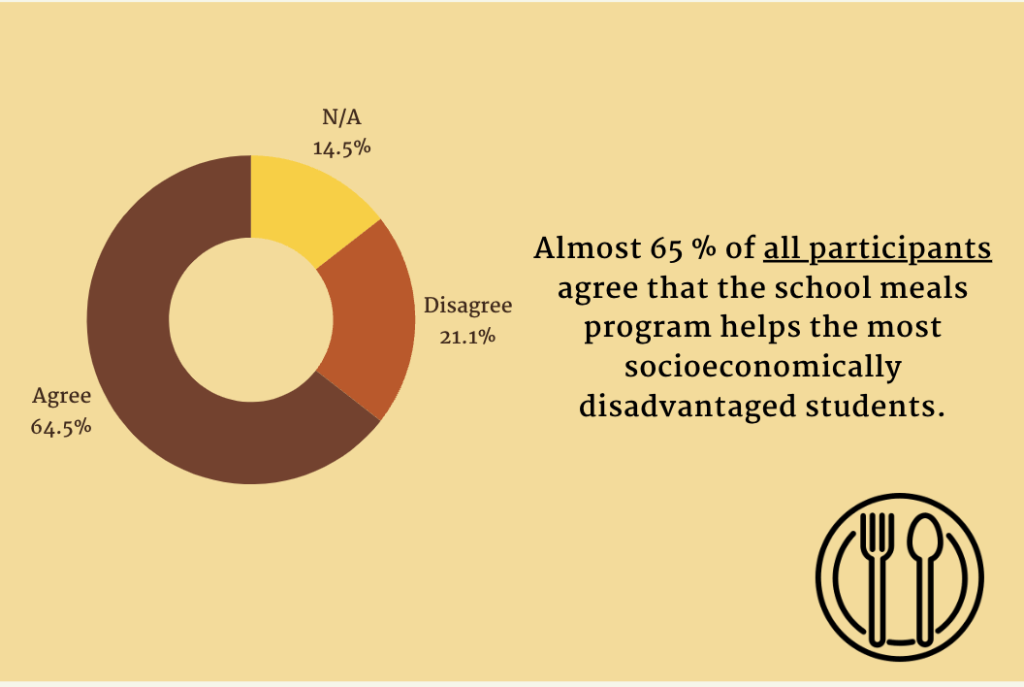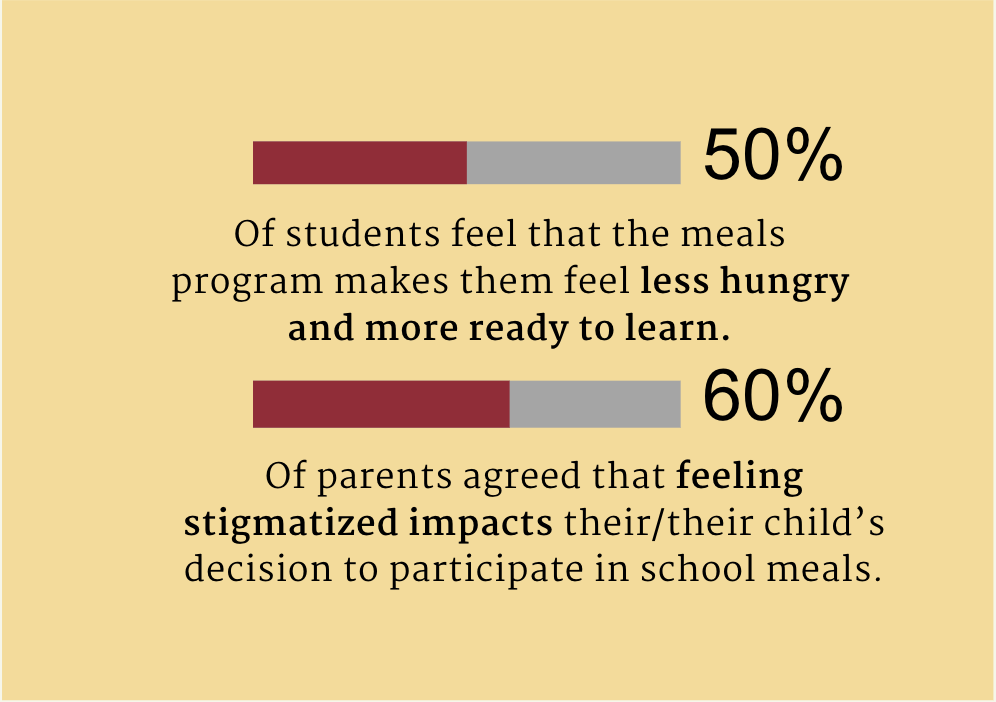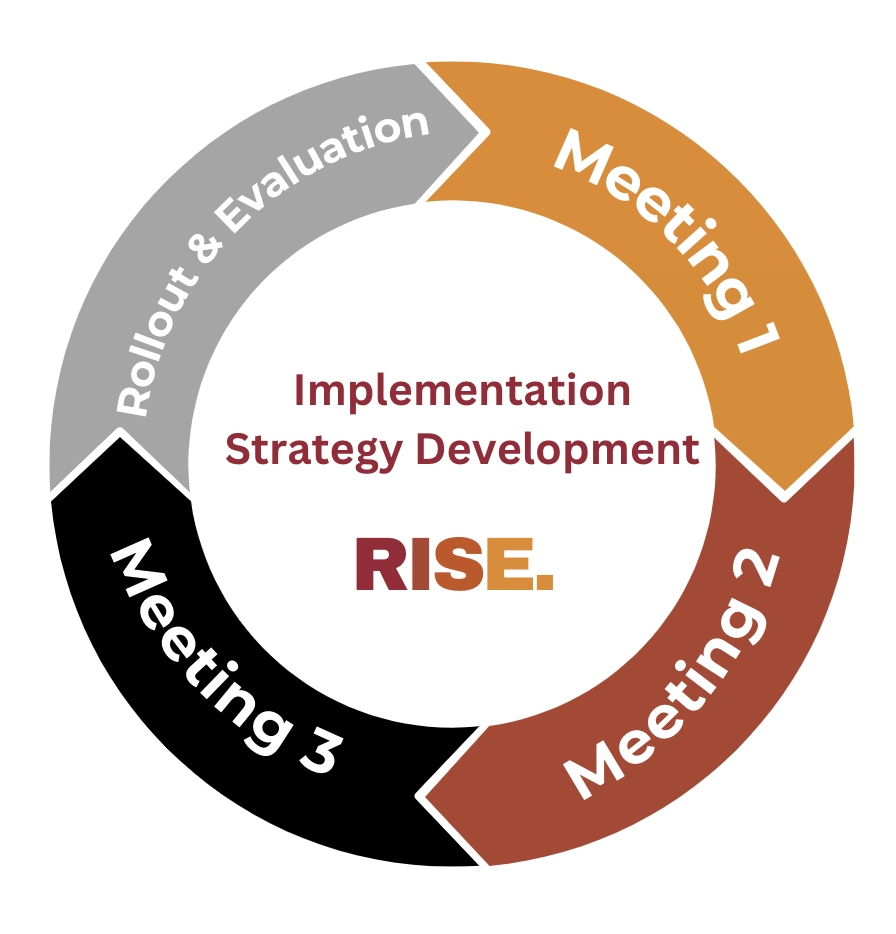This project aimed to identify what works well and what needs improvement in the implementation and participation of the universal school meals program in the School District of Philadelphia.
Methods
Results

This project occured in 5 steps that will take place between 2023- 2027. We began by collecting data on the challenges and supports of school meals within the School District of Philadelphia (link needs assessment report). From this, we entered Phase 2 of the study (steps 2-4) where we will hold planning meetings with 4 partner schools. These planning meetings were used to address the main themes that were identified in the needs assessment. We co-created procedures to improve the implementation of school meals based off of the SISTER School Implementation Strategies, Translating ERIC Resources Project.
Hearing from participants was crucial to our understanding of implementation of school meals.
Here are some impactful quotes:


Implementation Process
Throughout this year of our study, we held collaboration meetings to select and design strategies for each school. These meetings involved a team of community members, including students, parents, teachers, school staff, and food service workers. The model below outlines the structure of our three meetings, as well as the start of our testing phase.
Strategy Rollout
- Schools began implementing the plan in the 2025-26 school year
- Monthly check-in meetings were held to address challenges and concerns
Develop Implementation Strategies
- The school teams selected necessary action to guide strategies.
- Teams identified strategies to use in the school setting.
- Finally, they organized steps into a practical and adaptable plan for implementation.

- Reviewed Year 1 Needs Assessment Report.
- Set priorities to enhance school food climate over the next few years.
- Understood implementation mapping process.
- Identified what improvements we would like to see in the school food climate.
- Chose action steps to guide our strategies
- Identified how the strategy will be adopted in the school setting.
- Organized steps into a realistic plan for implementation in different contexts.
Next Steps...
Currently, we are actively working with school to learn the impact of strategies on school meal uptake. More updates coming soon!
Publications and Outputs
Understanding implementation determinants of universal school meals through and equity-driven mixed methods approach.
Key determinants to school breakfast program implementation in Philadelphia public schools: Implications for the role of SNAP-Ed
Advancing implementation science in community settings: the implementation strategies applied in communities (ISAC) compilation
Using implementation mapping to optimize
the impact of Universal School meals: a type
III hybrid implementation‑effectiveness study
protocol

